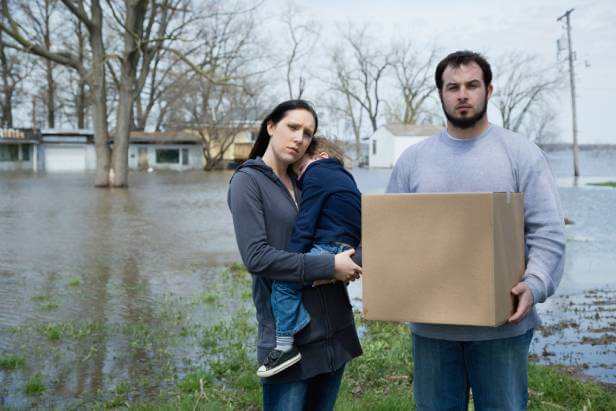As real estate prices continue to soar, more and more Americans are forced to rent. This means, of course, signing a lease. This is not as simple as it sounds, especially when there are multiple occupants in a single property. So, for the protection of landlords and tenants alike, here is the legal lowdown on who’s name must be on your lease and why.
What exactly is a lease?
The answer may seem obvious, but it is worth reviewing. A rental lease agreement is a binding contract between a tenant and a property owner outlining the terms and conditions for living at a rental property in exchange for rent. A lease is one of the most important legal documents you will sign, and we urge you to show it to a lawyer before you sign.
Who signs the lease first?
The tenant, or lessee, usually signs first. This protects the landlord from losing rental income if the tenant does not sign and is never heard from again.
Do all tenants need to sign the lease?
Not if a tenant is a minor. The lone exception to this is when a child has been ‘legally emancipated.’ This means a minor has been freed from control by their parents or guardians, and the parents or guardians are free from responsibility toward the child. Beyond this, no minor can be listed as a ‘tenant.’
Listing a child as occupant
However, a child may be listed on the lease as an occupant, but under no circumstances should have to sign the lease. A landlord cannot inquire about your children in any way, as familial status is a protected class under the Fair Housing Act.
When a minor turns 18
When a child turns 18, he or she should then be listed on your lease as a tenant. This protects both the landlord and the adult child. The landlord will have every legally responsible occupant on the lease, which makes enforcing the rules of the lease easier. And the adult child cannot be considered a guest—as opposed to a tenant—making it much harder to remove the adult child from the premises should a problem arise.
Does a co-signer have to be on your lease?
Absolutely. A ‘co-signer’ is on the lease to provide financial security to your landlord. A co-signer is required in situations where the renter—often a student—has no credit or rental history. The co-signer, on the other hand, must have a strong financial record. Their signature on the lease makes them the ‘guarantor’ for unpaid rent or property damage.
What about roommates?
Whether you have one adult roommate or five of them, each should put their name on your lease. Why? If you are the lone listed tenant, you are liable for whatever damage your roommates might cause, not to mention their potential non-payment of rent. Every adult occupant should be on your lease, so they all are responsible for the terms and conditions of that lease.
Is it possible to add a tenant after the lease is signed?
In the case of the minor turning 18, or if you take on a roommate after moving in, they would be added to your lease via a ‘co-tenant addendum’. This requires a full background check for the new addition, copies of identifying documents, and it specifies that the new adult will abide by all terms of the lease agreement.
Can someone live with you if they are not on your lease?
Yes, though, this brings up the sticky difference between a guest and a long-term guest. The occasional stayover should not be a problem. However, long-term guests, like:
- A ‘significant other’ moving in
- A friend who is doing some extended couch-surfing until they get gainful employment
- A family member on a long-term ‘staycation’
- Retired parents who plan on visiting for the spring…and summer
- A subletter that your tenant contracted with
- Anyone your tenant is ‘renting a room’ to via Airbnb
These can present nightmarish scenarios for a landlord because your ‘forever guests’ cannot be evicted in the event of damage, noise, or any lease violation. Again, check your lease. You might find a clause that states any guest staying beyond seven consecutive nights must first get written permission from your landlord. Or that no guest can stay more than three consecutive nights in one month. And, most likely, there will be a clause devoted to subletting, either forbidding it or outlining your landlord’s conditions for a sublet.
Speak to a lawyer before signing your lease
Remember to consult with your LegalShield provider lawyer before signing a lease. You will get answers to all the questions mentioned above, along with many others arising from all the complex terms and conditions contained in this important contract. Document review, starting at up to 15 pages, is included in your membership, along with help on other real estate questions, tax problems, help with traffic tickets, fender benders, marriage settlements that require divorce lawyers—really all the legal issues that simply come with life.
And if you’re not yet a member, see how on-demand law makes expert legal access affordable for everyone.
Pre-Paid Legal Services, Inc. (“PPLSI”) provides access to legal services offered by a network of provider law firms to PPLSI members through membership-based participation. Neither PPLSI nor its officers, employees or sales associates directly or indirectly provide legal services, representation, or advice. The information available in this blog is meant to provide general information and is not intended to provide legal advice, render an opinion, or provide any specific recommendations. The blog post is not a substitute for competent legal counsel from a licensed professional lawyer in the state or province where your legal issues exist, and the reader is strongly encouraged to seek legal counsel for your specific legal matter. Information contained in the blog may be provided by authors who could be third-party paid contributor. All information by authors are accepted in good faith, however, PPLSI makes no representation or warranty of any kind, express or implied, regarding the accuracy, adequacy, validity, reliability, availability, or completeness of such information.





